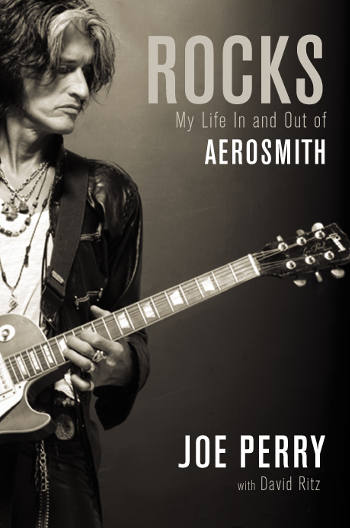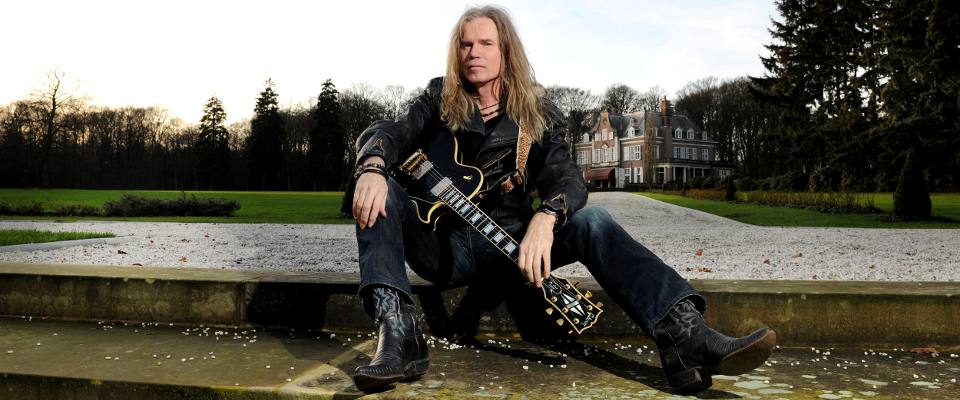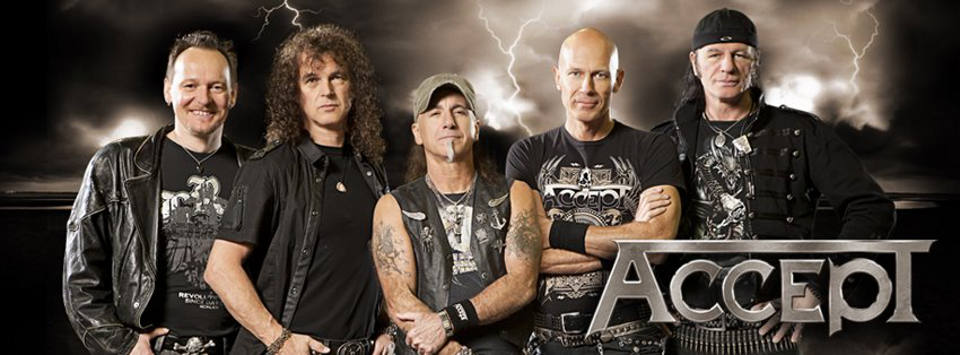 HRH: A few years back Tom Petty reactivated his old band Mudcrutch. Any hopes for a Jam Band album?
HRH: A few years back Tom Petty reactivated his old band Mudcrutch. Any hopes for a Jam Band album?
Joe: I doubt it. I don’t think that we did anything that was like … I mean, we were still learning how to play at that point. I think that it’s just a period of our lives when we were learning how to play, really. And it was … we had a great time. That part of it, we still carry with us when we play live. I mean “Rattlesnake Shake,” again, that’s the song that Steven heard us play and said, “Joe has got what I’m missing” and that’s what went through his mind. I mean he’s told me that in so many words and when I heard his bands I knew that he had what I didn’t have, you know? That song is kind of a … that and “Train Kept A Rollin’”… were the two songs where we met in the middle without having to talk.
HRH: Do you recall the reaction from the rest of the band when you and Steven debuted “Movin’ Out” to them?
Joe: Um, I think they were excited to have … to see a pattern of original songs. I mean, it started off that way and then the dam burst, you know, and we started writing. We were still doing cover songs, we were still doing songs that Steven had left over from his other bands. I mean he had 4 or 5 other bands by the point that I met him. He even said that he was thinking of quitting the business because he wasn’t getting anywhere with those other bands. But he did have a pocket full of songs and it just needed us to get together and put in that rock and roll edginess that his bands never really had. But that was it, so I think the band was pretty happy to see that we were moving along, you know, moving from being kind of an esoteric cover band to developing our own sound.
HRH: Well aside from the fact that it’s a great song, was “Let the Music Do the Talking” recorded by Aerosmith as kind of a sign of solidarity when you returned to the band?
Joe: You know, I’m not sure. I think it’s just one of those riffs that Steven wished that he’d had a shot at earlier on, you know, because probably a third … or half of those songs on that record I had when I left the band at least in some form or other. Even Jack (Douglas) said, you know if … anyway, that’s another thing, but obviously he really liked it, but he didn’t like the lyrics. He had to change the lyrics so that they would, I dunno…he’s got kind of a way of using lyrics as kind of a percussive kind of thing, so he wanted to change them. If that’s what it took to get him to completely give into the song, I was fine with it, you know, at that point because I write lyrics from a different point of view. So the fact that the basic song turned out to be the first one on the new Aerosmith record…that was a proud moment for me.
HRH: Absolutely. I saw that Steven has been saying in the press that early next year he’s going to be working on solo material in Nashville. Do you have any interest in doing any new solo material or a Joe Perry Project album?
Joe: Well, I’m always writing. I’ve already got 5 or 6 songs done that I’ve been working on. It’s just a matter of time and then I’ll get back in the studio. I mean, I love to write and I love to record. I’m not sure what form it’s gonna take or when it’ll come out with the business being what it is, but all I know is I have to be in the studio a certain amount of time or else I start to feel like I’m gonna explode. This book tour is kind of … it’s finished me off. This last four years was tough and then doing the book tour…I need a little time off, but I’ll be in the studio. You can count on it, but I’m not sure how long it’s gonna take. The way the business is now I really don’t know. I don’t even know if doing an album is … especially for a band like ours, artists like us that have been around for so long … if that’s the right way to go. Steven’s been talking about doing it for a long time, so I’m happy for him that he’s gonna have a chance to do it and, you know, we’ll see how it goes … but I’ll definitely be in the studio.
HRH: A favorite part of the book for me was when you talked about Aerosmith opening up for Edgar Winter and Rick Derringer when Johnny Winter also showed up and you got to see him play. What was it like working with him on his final album Step Back on the song “Mojo Hand”?
Joe: It was typical like a lot of music is done today. I mean, they sent me the files and I was working with Bruce Watkins who’s a really good friend of mine out here. He’s a great engineer and great bass player and good friend … anyway they sent the files out. Johnny had said, “It’d be great if Joe would play on it” and I was flattered because I hadn’t really seen or talked to Johnny for I don’t know … probably that time … I can’t recall running into him, you know, in recent memory and the fact that he knew who I was and wanted me to play on his record … that was great because he’s a big influence on my playing. I used to see him at the Tea Party back in like ’67, ’68, you know? Anyway, the best part was when he was out on tour a couple of months later I was able to spend a couple of hours in his dressing room with him and talked to him. He was just the nicest guy … still playing. He was clean. You know, he wasn’t fucked up. He was … you know, it was just amazing to see him still doing it. Meeting him and talking to him and getting to hold that Firebird … that was the same Firebird that he played when I saw him play back in ’67 and ’68. He even had the same slide. He said, “Yep, that’s the same slide. The same Firebird.” And it sure looked like it, I’ll tell ya, there was nothing like it. He was one of the nicest guys you’d ever want to meet and a few months later he passed away. It was like one of those things…I was just blessed, you know?
HRH: In the book, you say that Clapton has a concept of there being a “pure blues” and that you didn’t really agree with that and that you think the blues is more plastic than that. Can you elaborate on that a little bit?
Joe: Um, yeah. I’m not really sure what “pure blues” is, you know? Is it like only playing those specific notes in that pentatonic scale? Is it wearing a certain kind of fedora? You know what I mean? It’s like blues is a thing that’s always changing and you can hear it in so many different forms of music. So I think that Eric was trying to find the answer to that, you know, playing in those early days. You know when they did Cream … that was a form of a blues and there are people that would say, “Well, that’s not pure blues.” You know? “That doesn’t come under the heading of pure blues.” Well, I think it’s blues. I think it’s just a different take on it. You know what I mean? I think that some of his most brilliant playing under the heading of blues was some of the stuff they did in Cream, you know, because it all comes from that same source. It’s like the same tree, you know, every apple doesn’t have to taste exactly the same. So, I don’t know, it’s a matter of semantics almost or what people think. Like my friend who was so into calling it “pure blues” and walking around in baggy jeans and not wearing shoes and a funky t-shirt … and being a blues purist. I don’t know what that really is … I haven’t found out yet, but I don’t spend too much time worrying about it.
HRH: I think you’ve done alright without worrying about it. (laughs)
HRH: Last question for you Joe. What message do you hope people get out of reading Rocks, your book?
Joe: I think that a lot of the experiences that I went through as a kid and into actually making a career out of something that way back then a lot of people said wouldn’t last more than two years kind of thing… but I think a lot of the same dynamics that you run into with other people in such a close relationship, you don’t have to be a rock n’ roller to learn something about how to deal with other people and get along … and accept certain things … and get through life. I’ve managed to raise four kids and have a beautiful wife … our marriage is going on thirty years. You know, it’s like we have this suburban idyllic lifestyle, you know what I mean, when we’re not on the road … but it’s a rock n’ roll lifestyle, you know? A lot of times we’re like gypsies out there, but it just shows that it can be done. I hope that people can maybe pick the book up and learn from some of my mistakes and make life a little easier.
HRH: Well Joe, I really appreciate your time. It’s been an honor talking to you. I’ve been a fan my whole life, so thanks for taking the time.
Joe: Great, well thanks a lot man. I really appreciate it.
Fans can purchase ROCKS: My Life In and Out of Aerosmith here:
Amazon.com – http://amzn.to/WiG3qm
Barnes & Noble – http://bit.ly/1twTeSY
BAM – http://bit.ly/1Belzi2
Indie Bound – http://bit.ly/Yfg4ln
Audible.com – http://bit.ly/1xgPRSx
For more information, visit: joeperry.com



